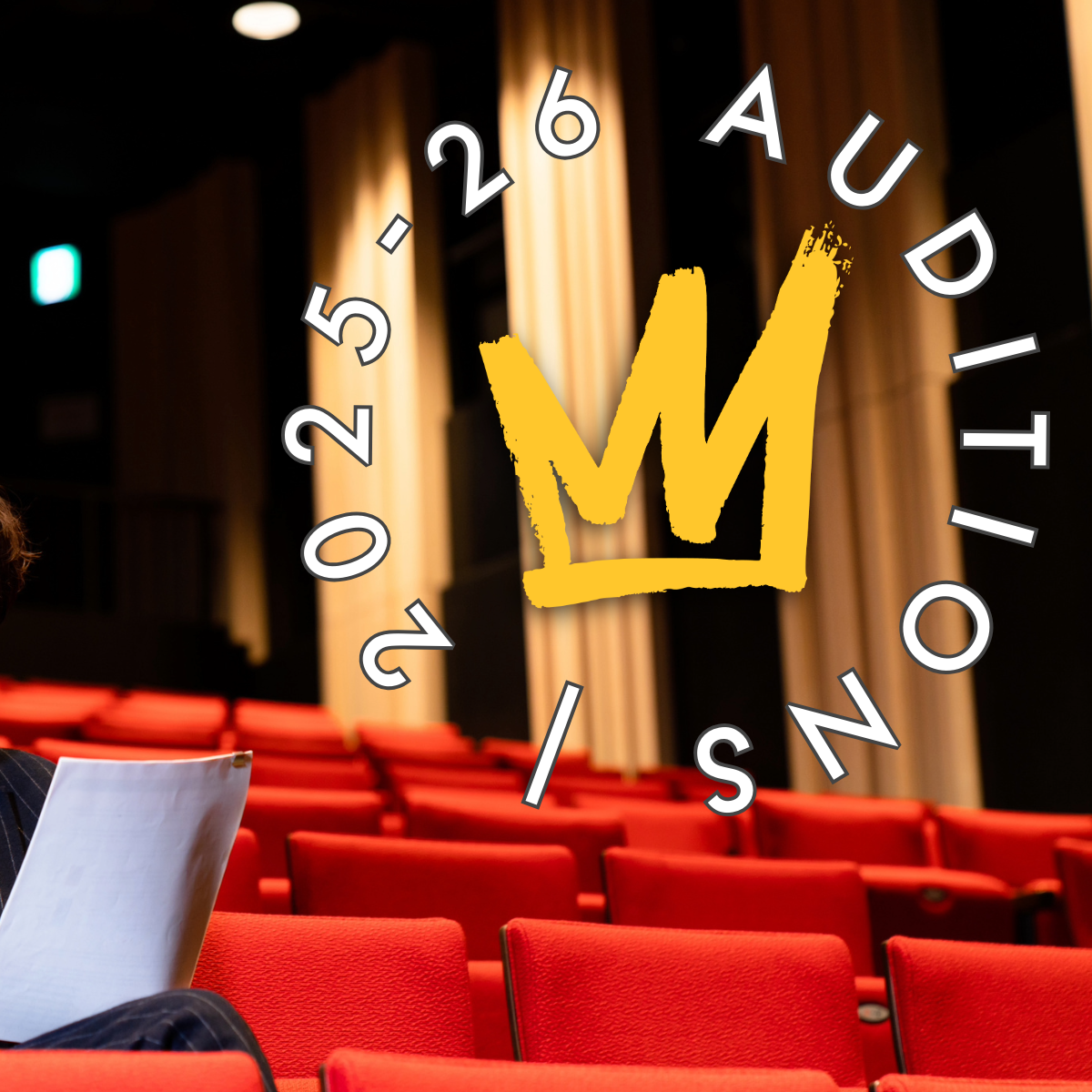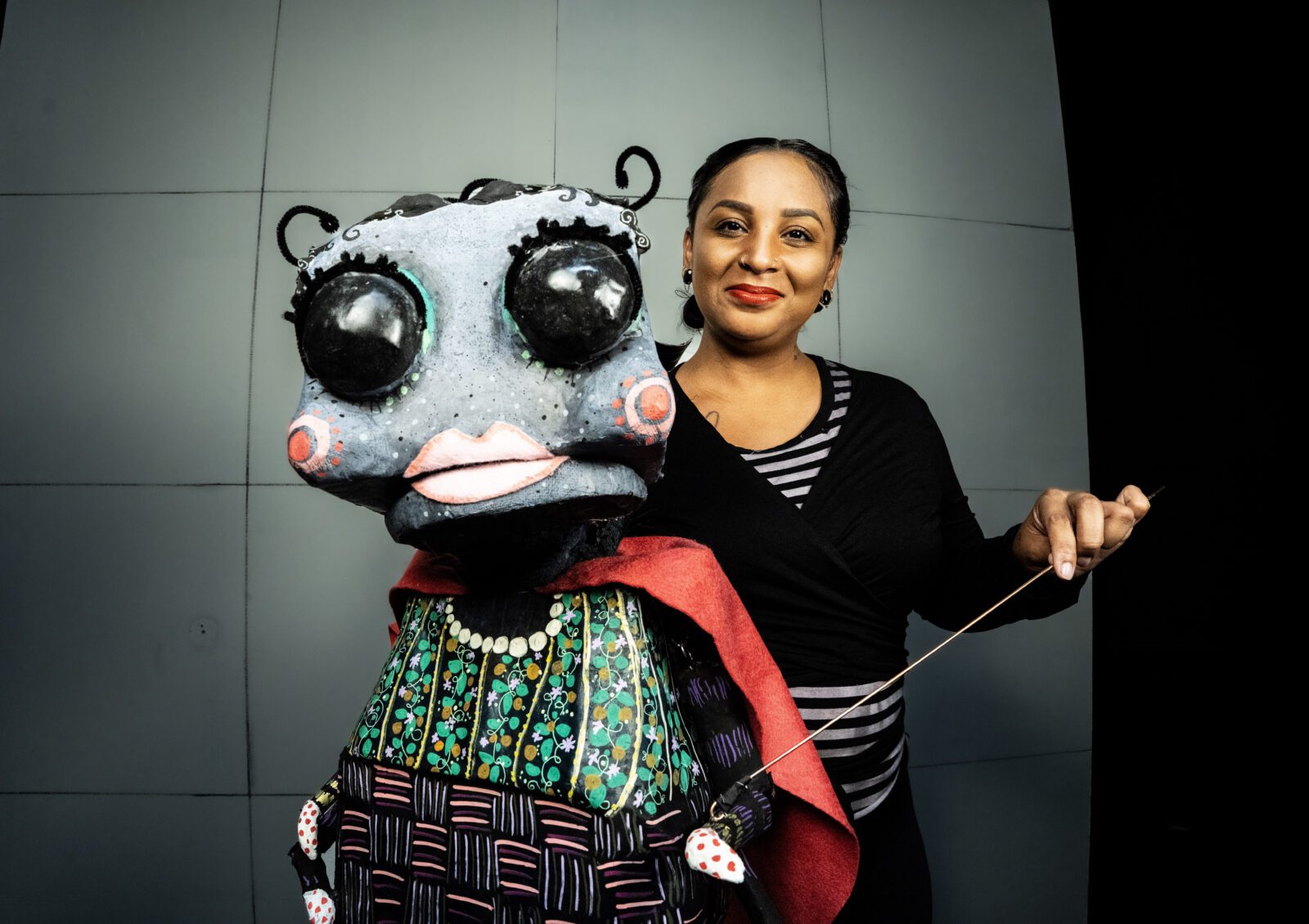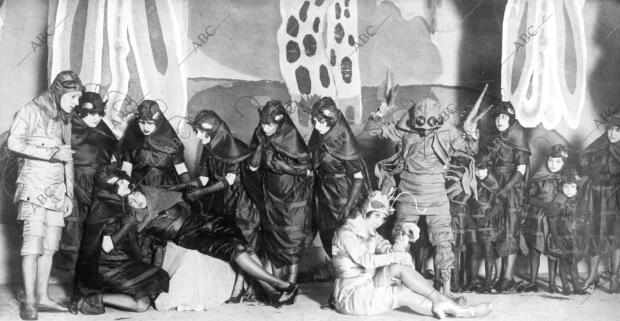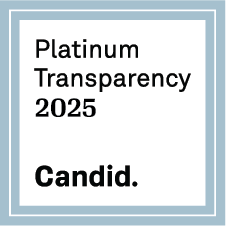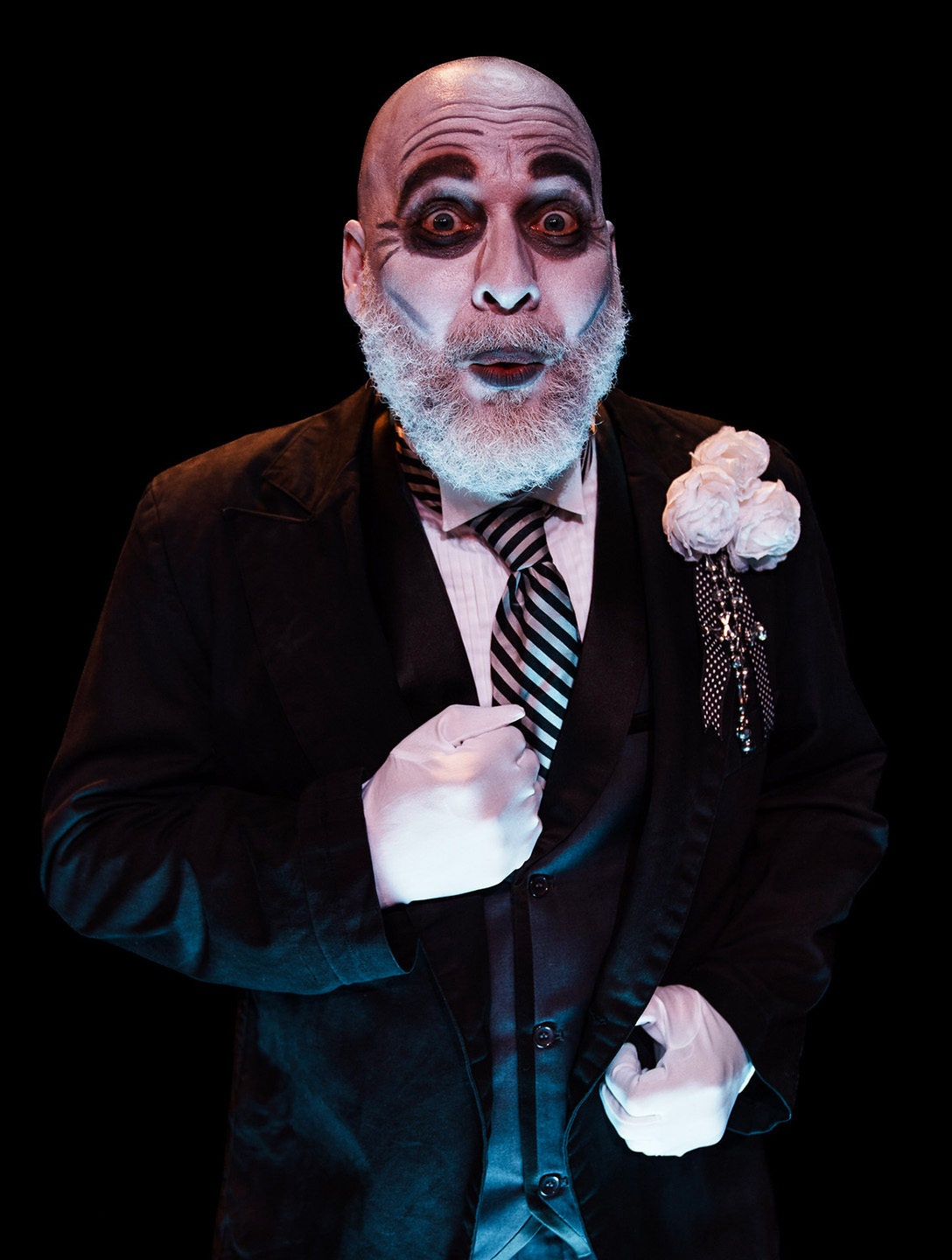It’s season announcement … season! This is the time of year where we start to get a lot of new followers on social media, and a lot of questions about how to get hired. 🙂
The audition process is surely one of the hardest things about being a performer. There is such tremendous uncertainty, and we know it probably feels more often than not just sorta dehumanizing and that the deck is stacked entirely against you. We certainly don’t want to contribute to any of that and so have put together a little guide to help steer folks preparing not just for us but the other regional companies about to start the same process we are.
Set yourself up for success.
The above statement is going to be the running theme for this post. From knowing the companies work first-hand you plan on being seen by to simply following instructions — there is so much we CAN’T control as artists putting ourselves out there that taking care of what we CAN control becomes that much more important.
You can’t book the work if you don’t audition.
We know that might sound basic, but it can’t be repeated enough. None of us can expect the phone is just going to ring without putting in the effort, whether we believe we’ve “earned” that status or not. We’ve also heard “through the grapevine” (a phenomenon of the industry that often does NOT help set us up for success) that some people perceive we don’t cast outside of our immediate circle of core artists. When we’re directly made aware of the source, it’s often someone who hasn’t auditioned for us …
If you haven’t worked for Jobsite in the past few seasons in an on-stage role, auditioning in person at the Theater Tampa Bay Unified Auditions Sat., May 31, is the best way to set yourself up for success to get a callback.
Yes, we will accept a video audition (also due by May 31) but we’re making this as clear as we can: there is stark difference between a self tape and live audition. We do theater, not film. We would far rather see you on a real stage in a real theater doing your thing. If you have the ability, do yourself a favor and go to Unifieds. If you just don’t wanna, you might wanna rethink that if serious about getting a callback with us.
We want to see you, we want you to kill it, and we want to see you in person. We will never cast completely from a tape.
Unfortunately, we will not be able to attend the FPTA auditions this year in Sarasota. So … go to Unifieds. 🙂
Know who you’re auditioning for and the work they do.
Recon! Not every theater in this region is the same (thank goodness!). Some companies have pretty specific missions, do pretty specific work (or specifically do NOT do certain work), and/or have pretty specific aesthetics. It would be a mistake to think that there is sort of a “one size” approach, and you may find that knowing who’s who and who does what can … you guessed it … set you up for success! See a show, ideally see more than one. Follow them on social media. This may also help you find the companies you feel you’d best vibe with or learn in advance about where you might not be the greatest fit.
We have a pretty specific vibe, and we’re looking for like-minded people to vibe with us!
I usually offer an audition workshop every summer at the Tampa Bay Theater Festival, here are some of the other topics I include for folks looking to book that job:
Properly prepare your materials.
- Follow instructions for whatever the call is — remember this part of your audition! Some might say if someone can’t follow instructions how are they possibly going to take direction? If the call asks for an unlisted YouTube link, don’t attach a file. If they ask for one pdf of the headshot and resume combined, do not send a word doc and a jpg separately.
- If you’re starting out, you don’t need to spend a bunch of money on materials, not on a headshot or a self-tape. That’s not the point.
- Phone a friend: you likely know someone who can help get a good photo or make sure you can be seen and heard on self-tape.
- Outdoor headshots with natural lighting are often hard to mess up!
- Make sure your photo really looks like you, not like one of those weird glamor-filtered IG posts. You might also consider a second smaller photo inset on the resume page to show variation if you had a hard time deciding which shot to use.
- Don’t lie about a part or show, people will find out. If a role was something you did for a class, just say it. Avoid “representative roles” you never really did outside of class, and don’t include a special skill you can’t do on command. This can also become an icebreaker so have fun! If you list “Chewbacca impersonation” on your resume, I’m asking you to do it!
In-person “cattle calls” and self tapes
- We all know this isn’t “real acting,” it’s a business card — and should be as polished as one. Slate, transition, piece one, transition, piece two, transition, song, end slate (or whatever the format is).
- In-person advice: your audition starts as soon as you arrive, be nice and don’t talk trash! Word travels faster than you think, and I regularly ask the audition stage managers who seemed like good people, who was haughty, etc. I won’t call folks back who are rude, gossipy, or just full of drama in the lobby before they get in.
- Make distinct choices, press the contrast in your pieces. Especially at an audition like Unifieds where you will be seen by numerous companies for season consideration! Don’t make us try to guess if you just do comedy or dramatic work. Many people choose to just come and sing 16 bars of a song, which gives me absolutely no idea about someone’s acting ability, or does 2 minutes of a highly over-the-top comic monologue which gives me no baseline for their more subtle dramatic work.
The callback and interview — remember you’re human (as are they)
- Read the whole show, ideally more than once, and ask yourself what you might bring to the role or play — and again pay attention to what is sent to you with descriptions and instructions. You may be given direct lines to color within or be offered things that will help guide your choices.
- Ask hard questions: what do you like/not like about the show? What excites you about this opportunity, specifically? What makes you nervous or gives you hesitation?
- If you get an interview, allow yourself to be human and not just “an actor.” Pay attention for cues and invitations, you may be asked general questions about you and your life, and these can become opportunities to talk about more than “just theater.” Remember that vibe thing above? Often someone is trying to see about yours, and hopefully we’re all more than just people who do shows.
- Make choices, be bold! If a performer comes in guns blazing and the choice isn’t maybe exactly what we wanted, we can ask for another choice. Sometimes when an actor isn’t bringing anything discernible, we think they either didn’t put the work in or aren’t capable of relaying a choice, which can sink you.
- Always make a cold read with another actor directly about the other actor. Just like you’d do in a real show, your job is to make the other person look good and in doing that you’re going to look great. If I see in a callback an actor is walking around up there in a bubble and not connecting/uplifting the others, I’m not very likely to cast them.
Follow-up and follow-through
- It never hurts to follow up after an audition and thank folks, but it is by no means required.
- Yes, someone should always get back to you one way or the other (and we do). Be patient.
- The more you audition, the better you will get and also the more likely someone simply calls you up one day from that theater or another. I’ve recommended several actors to folks who I haven’t had the chance to cast yet, but who have been on my radar from in person auditions.
- See the show if you don’t get cast as a learning experience if not to just be collegial. If you really want to know what the director was looking for, this can be part of the process and may set you up better for success the next time around.
- Be careful of online communities and text threads that encourage gossip and trash talk after the fact, people can (and will) screencap/share, and the overall attitude of “us against them” is not helpful, especially in a small market like Tampa and in a community where most of us on the producing side are also artists (true story: those of us who started Jobsite did so as a pack of artists who just didn’t feel like we fit anywhere else). If you feel what you feel and so wanna say what you wanna say by all means go right ahead, but know that pretty much everyone in my position wants to save all the drama for the stage.
Back to casting in general
- You rarely lose a role, someone else wins it. And, you can only control what you can control. If a director simply has a different vision/take or someone just outright crushes it, that’s just part of the business and it’s hard enough for us out there without always taking it personally.
- There’s a lot of talk about company (pick a company, any company) “favorites,” but the truth is that directors love to be surprised. Now, do some companies have long-term relationships with artists who regularly always seem to get the big part? Sure. If you have Tom Brady on your bench are you not going to start him? Is anyone out there really surprised Giles Davies claimed the part of Macbeth from an audition pool of 20-something actors?
- We sincerely do not bother going through the motions with a callback process if we’ve already promised a role, that is a waste of everyone’s time. And, in the coming season we can say with certainty that the only unavailable role is that of Penelope.
Trusting an artist with a part is more than just about your skill or audition: can they be relied on, does their vibe fit the room and company, do they have a reputation as being difficult?
None of us are getting loaded over here from this, and the stakes financially are incredibly high to just try to scrape by. We won’t speak for everyone, but we’re just simply not interested in taking those kinds of risks. No one is that talented, and no one is making enough to endure the stress an aggravation.
Even more specific advice for anyone auditioning for us in the coming season:
We’re already seeing the through-the-roof interest on American Idiot. Jobsite has a long history with rock musicals, and we can’t be more clear: do a rock audition. There is an attack on the language in a show like this, there is an incredibly distinct sound. If we do not hear it in the initial audition, we won’t be calling the person back. For complete transparency the sound that passes off as “rock” in rock musicals is often too MUSICAL and not enough rock for my tastes. This is hard to teach in a few weeks and I won’t try, and folks not used to singing like that can often blow their voices out in a few days if they just try gutting it out. Look for the documentary “Zen and the Art of Screaming” on YouTube to learn more.
Similarly, Ghost Brothers of Darkland County has a very distinct country/blues sound and we will be specifically looking for actors who excel at it. There is a concept album available to listen to, and folks auditioning would be wise to make those choices explicit.
We strongly urge anyone interested in The Comedy of Errors take the time to watch (or watch again if it has been a minute) the entire Playing Shakespeare series from the BBC (available for free on YouTube) to better understand our method of performing these plays. We know this sort of work can be hard at first, but the text is the first and the last and the only thing for us.
The Shark is Broken might be the hardest of them all in the coming year, the brass tacks are simply that we are looking for dead-ringers of those film actors in both appearance and presentation.
I will keep this post active and add to it as thoughts arise. In the meantime, I encourage questions below!

